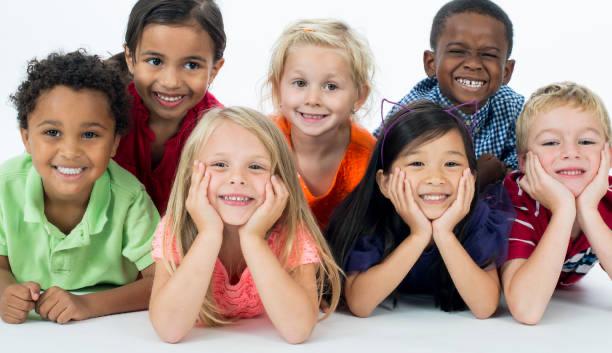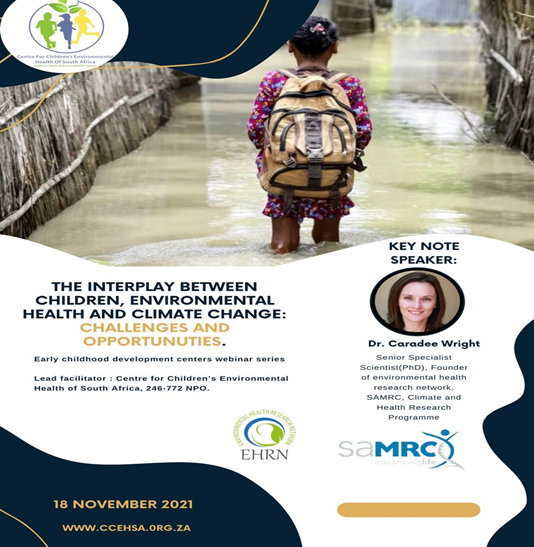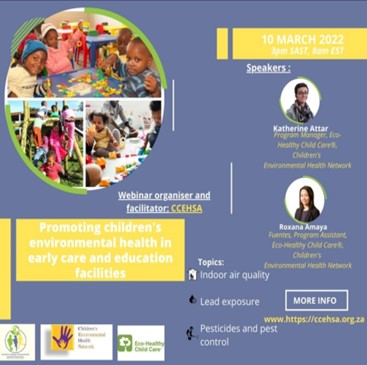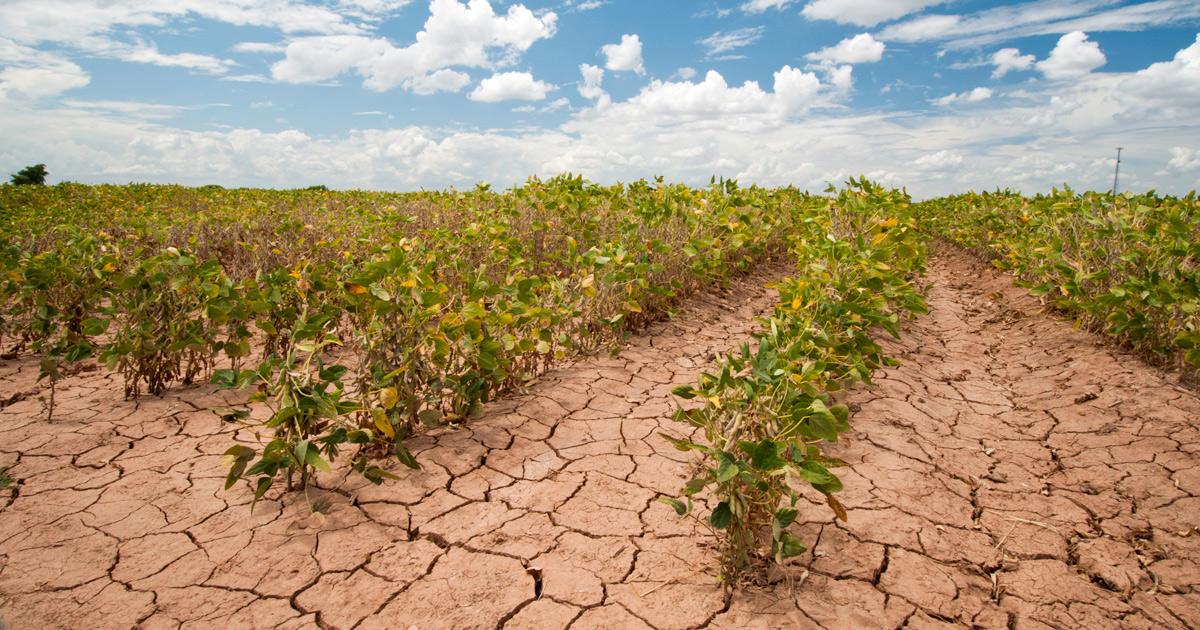
_______ mission _______
CCEHSA is a Non-profit Organisation established in 2020, registration number: 246-772 NPO, whose main objective is to find and implement ways to reduce exposure to several environmental risk factors in the places where children live, play and learn. The organisation caters for ALL children of SA, especially the disadvantaged between the ages of 0-18 years to bring positive change in their lives by improving their health through providing a platform for engagements and strategy development on environmental health challenges faced by children in the society. Through partnership with several interested parties, CCEHSA seeks to change the current existing children’s environmental health governance gap.
_______ our values _______
To be a leading centre of excellence in the Southern African Development Community (SADC) region where fundamental children’s environmental health rights are prioritized, realized and achieved. To provide a platform for strategic development of children’s environmental health in South Africa by:
- Putting children first
- Embracing the Environment
- Community involvement
- Cooperation, solidarity, and partnership
- Social responsibility
_______ what we do _______
-
advocate for child environmental health
We strive to accelerate and amplify environmental health knowledge and practices that affects the children of South Africa.
-
build partnerships
Initiating and collaborating with other organisations on knowledge exchange on children’s environmental health issues and public health challenges.
-
driving change
Assist interested parties in establishing targets and verifying performance in the promotion of children’s environmental health.
-
enhance literature
We aim to reduce ill-health caused by environmental factors amongst children by growing the literature base on children’s environmental health.
-
promote awareness
enhance children’s health through promoting awareness on healthy environments for children.
-
training support
We provide support and training expertise to Early Childhood Development centres on children’s environmental health.
_______ the challenges _______
-
air pollution
If your child breathes in high levels of air pollution over a long period of time, they might be at risk of: their lungs not working as well as they grow […]
-
climate change
Climate change threatens the ability of families and communities to provide safe housing, nutritious food, high-quality medical care and learning opportunities
-
lead exposure
Exposure to lead can seriously harm a child’s health, including damage to the brain and nervous system, slowed growth and development, learning
-
poor quality housing
Poor living conditions can also prevent children from engaging in playful and social activities, which are beneficial to their cognitive, social, and emotional well-being.
_______ example projects _______
-

Advocacy
For two weeks in November 2022, world leaders held climate negotiations in Sharm el-Sheikh, Egypt, at the annual United Nations Climate Change Conference (COP27). Their conversations were informed by the […]
-

Climate Change Webinar
CCEHSA conducted a training webinar for educators in collaboration with South African Medical Research Council and Environmental Health Research network. The purpose of the webinar was to improve the quality […]
-

Early Childhood Development Practitioner Training
CCEHSA conducted ECDCs Practitioner training webinar in partnership with CEHN, USA. Washington DC to create an awareness on the impact of pesticides, lead exposure and indoor air quality on children’s […]
-

Environmental Health Leadership Program For High School Learners
An environmental health leadership and learning program for the youth can increase their environmental awareness, improve their pro-environmental behavior, increase social capital, strengthen the environmental health literacy of the youth and motiving them to pursue careers in science, and create future civic-minded leaders to provide a sustainable environment for future generations.
-

HPCSA Accredited training for Environmental Health Practioners
EHP’s are the first line of defense in identifying environmental health risks and hazards which directly affect the health of children. Awareness and knowledge will empower them to act swiftly […]
_______ the team _______
Our Professional Experts










